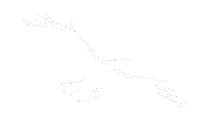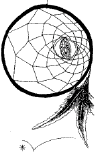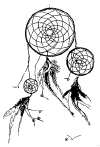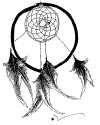CHAPTER XVI.
ENDING OF THE FRENCH SUPREMACY.The Ojibways aid the
French in the war against the British--Mamong-e-sada leads a party of their
warriors from La Pointe, who fight under Montcalm at the taking of
Quebec--Origin of the Ojibway name for the English--They view with regret
the evacuation of their country by the French--Those who remain amongst them
through the ties of marriage, wield an important influence over their
conduct--They stand neutral during the strenuous efforts made by the Algic
tribes in opposition to the English--Nature of the hostility evinced by the
Ojibways against the British--Speech of Meh-neh-wehna to Alexander
Henry--Eastern section of the tribe join "Pontiac's war"-Capture of the fort
at Michilimackinac intrusted into their hands Shrewdness and foresight of
the Ojibway chieftain--British commandant refuses to listen to hints of
danger--Game of Baugudoway--Manner in which the fort was taken--Testimony of
Alexander Henry--His capture and ransom-Troops massacred.
We have now brought forward the history of the different
sections of the Ojibway tribe, to the time when the French nation were
forced to strike their colors and cede their possessions in America
(comprising the great chain of lakes), into the hands of the British Empire.
The time during which these two powerful nations battled
for the supremacy on the American continent, is an important era in the
history of the Algic tribes who occupied a great portion of Canada, and the
areas of the great western lakes.
Induced by their predilection to the French people, the
causes of which we have given in a previous chapter, the eastern section of
the Ojibway tribe residing at Sault Ste. Marie, Mackinaw, and the shores of
Lake Huron, joined their warriors with the army of the French, and freely
rallied to their support at Detroit, Fort Du Quesne, Niagara, Montreal, and
Quebec. The Ojibways figured in almost every battle which was fought during
these bloody wars, on the side of the French, against the English. A party
of the tribe from their central village of La Pointe on Lake Superior, even
proceeded nigh two thousand miles to Quebec, under their celebrated war
chief Ma-mong-ese-da, and fought in the ranks of Montcalm on the plains of
Abraham, when this ill-fated general and the heroic Wolfe received their
death wounds. According to the late noted British interpreter John Baptiste
Cadotte, the name by which the Ojibways now know the British, Shaug-unaush,
was derived from the circumstance of their sudden and almost unaccountable
appearance, on that memorable morning on the heights of Abraham. It is a
little changed from the original word Saug-aush-e which signifies "to appear
from the clouds."
With the deepest regret and sorrow, the Ojibways in common
with other Algic tribes, at last viewed the final delivery of the
Northwestern French forts into the hands of the conquering British. With
aching hearts they bade a last farewell to the kind hearted French local
commanders, whom they had learned to term "Father," and the jovial hearted "Coureur
du Bois" and open-handed "Marchand voyageur," many of whom took their final
departure from the Indian country on 'its cession to Great Britain. The
bonds, however, which had been so long riveting between the French and
Ojibways, were not so easily to be broken.
The main body of the French traders and common voyageurs
who had so long remained amongst them, had many of them become united to the
Indian race by the ties of marriage; they possessed large families of
half-blood children whom the Indians cherished as their own, and in many
instances actually opposed their being taken from their midst. These
Frenchmen, as a body, possessed an unbounded influence over the tribes
amongst whom they resided, and though they did not openly aid and advise
them in the strenuous efforts which they continued to make even after the
French as a nation had retired from the field, to prevent the occupation of
their country by the British, yet their silence and apparent acquiescence
conduced greatly to their noble and protracted efforts headed by the great
Algic leader Pontiac.
The fact of their love and adherence to the French people
cannot be gainsaid, and to more fully illustrate this feeling, as it
actuated their conduct even after the great French nation had delivered them
over to the dominion of the British, I will refer to the respected authority
of Alexander Henry, the first British trader whom the Ojibways tell of
having resided with them after the termination of the disastrous war which
we are about to notice.
In 1760, the French forts on the northern lakes were given
up to the British, and for the time being the northern tribes of Indians
apparently acquiesced in the peace which their Great Father, the French
King, had made with Great Britain. In the spring of the following year, Mr.
Henry, the well-known author of" Travels and Adventures in Canada and the
Indian Territories, between the years 1760 and 1766," tells of making a
trading voyage from Montreal to Michilimackinac. He came across a large
village of Ojibway Indians on the small island of La Cloche in Lake Huron
who treated him in the kindest and most friendly manner, till, "discovering
that he was an Englishman," they told his men that the Michilimackinac
Indians would certainly kill him, and that they might as well anticipate
their share of the pillage. They accordingly demanded a, part of his goods,
which he prudently gave them. He observed afterwards that from the repeated
warnings which he daily received, his mind became "oppressed and much
troubled," and learning that the "hostility of the Indians was exclusively
against the English," this circumstance suggested to him a prospect of
security in securing a Canadian disguise, which eventually enabled him to
complete his journey.
He arrived at Michilimackinac, where he found his
difficulties to increase, and where he fully learned the nature of the
feelings which actuated the minds of the Ojibways against the occupation of
their country by the English, nor were his apprehensions allayed, till he
received a formal visit from the war chief of the eastern section of the
tribe, who resided at Michilimackinac. Mr. Henry describes this man as a
person of remarkable appearance, of commanding stature, and with a
singularly fine countenance.
He entered the room where the traveler was anxiously
awaiting the result of his visit, followed by sixty warriors dressed and
decorated in the most formal and imposing fashion of war. Not a word was
spoken as they came in one by one, seated themselves on the floor at a
signal from the chief, and began composedly to fill and smoke their pipes.
The Ojibway chieftain meanwhile looking steadfastly at the trader, made
various inquiries of his head boatman, a Canadian. He then coolly observed
that "the English were brave men and not afraid of death, since they dared
to come thus fearlessly among their enemies."
When the Indians had finished smoking their pipes, the
chief took a few wampum strings in his hand and commenced the following
harangue: --
"Englishman! It is to you that I speak, and I demand your
attention!
"Englishman! You know that the French king is our father.
he promised to be such; and we, in return, promised to be his children. This
promise we have kept.
"Englishman! It is you that have made war with this our
father. You are his enemy; and how then could you have the boldness to
venture among us, his children? You know that his enemies are ours.
"Englishman! We are informed that our father, the king of
France, is old and infirm; and that being fatigued with making war upon your
nation, he is fallen asleep.
"During his sleep, you have taken advantage of him and
possessed yourselves of Canada. But his nap is almost at an end. I think I
hear him already stirring and inquiring for his children, the Indians: --and
when he does awake, what must become of you? He will destroy you utterly.
"Englishman! Although you have conquered the French you
have not yet conquered us! We are not your slaves. These lakes and these
woods and mountains were left to us by our ancestors. They are our
inheritance, and we will part with them to none. Your nation supposes that
we, like the white people, cannot live without bread and pork and beef. But
you ought to know that he--the Great Spirit and master of life--has provided
food for us in these broad lakes and upon these mountains.
"Englishman! Our father, the king of France, employed our
young men to make war on your nation.
In this warfare, many of them have been killed, and it is
our custom to retaliate, until such time as the spirits of the slain are
satisfied. Now the spirits of the slain are to be satisfied in either of two
ways. The first is by spilling the blood of the nation by whom they fell;
the other, by covering the bodies of the dead, and thus allaying the
resentment of their relatives; his is done by making presents.
"Englishman! Your king has never sent us any presents, nor
entered into any treaty with us, wherefore he and we are still at war; and
until he does these things, we must consider that we have no other father or
friend among the white men than the king of France. But for you, we have
taken into consideration that you have ventured your life among us, in
expectation that we should not molest you; you do not come armed with an
intention to make war. You come in peace, to trade with us and supply us
with necessaries of which we are much in want. We shall regard you therefore
as a brother, and you may sleep tranquilly without fear of the Chippeways.
As a token of our friendship, we present you with this pipe to smoke."
Mih-neh-weh-na, the name of the chieftain who delivered
this noble speech, now gave his hand to the Englishman. His sixty warriors
followed his example. The pipe, emblem of peace, went round in due order,
and after being politely entertained by the anxious trader, from whose heart
they had taken a heavy load, they all quietly took their leave.
So many more able writers than myself have given accurate
accounts of the memorable events which occurred during this important era in
American history, that I desist from entering into details of any
occurrence, except in which the Ojibways were actually concerned.
For upwards of four years after the French had ceded the
country to the British, the allied Algic tribes, after a short lull of quiet
and comparative peace, under the masterly guidance of Pontiac, maintained
the war against what they considered as the usurpation, by the British, of
the hunting grounds which the Great Spirit had given their ancestors.
Such was the force and accuracy of the organization which
this celebrated leader had effected among the northern tribes of his fellow
red men, that, on the same day, which was the 4th of June, 1768, and the
anniversary of the king's birth (which the Indians knew was a day set apart
by the English as one of amusement and celebration), they attacked and
besieged twelve of the wide-spread western stockaded forts, and succeeded in
taking possession of nine. In this alliance, the Ojibways of Lake Huron and
Michigan were most active parties, and into their hands was entrusted by
their common leader, the capture of the British fort at Mackinaw. "That
fort," according to the description of an eminent writer, "standing on the
south side of the strait between lakes Huron and Michigan, was one of the
most important positions on the frontiers. It was the place of deposit, and
point of departure between the upper and lower countries; the traders always
assembled there, on their voyages to and from Montreal Connected with it,
was an area of two acres, enclosed with cedar wood pickets, and extending on
one side so near to the water's edge, that a western wind always drew the
waves against the foot of the stockade. There were about thirty houses
within the limits, inhabited by about the same number of families. The only
ordinance on the bastions were two small brass pieces. The garrison numbered
between ninety and one hundred."
The important enterprise of the capture of this important
and indispensable post, was entrusted into the hands of Mih-neh-weh-na, the
great war chieftain of the Ojibways of Mackinaw, whom we have already
mentioned, and by the manner in which he superintended and managed the
affair, to a complete and successful issue, he approved himself a worthy
lieutenant of the great head and leader of the war, the Ottawa chieftain
Pontiac.
The Ottawas of Lake Michigan being more friendly disposed to the British,
were not called on by the politic Ojibway chieftain for help in this
enterprise, and a knowledge of the secret plan of attack was carefully kept
from them, for fear that they would inform their English friends, and place
them on their guard. In fact, every person of his own tribe whom he
suspected of secret good-will towards any of the new British traders, Min-neh-weh-na
sent away from the scene of the intended attack, with the admonition that
death would be their sure fate, should the Saugunash be informed of the plan
which had been formed to take possession of the fort.
In this manner did he guard with equal foresight and
greater success than Pontiac himself, against a premature development of
their plans. Had not the loving Indian girl informed the young officer at
Fort Detroit of Pontiac's secret plan, that important post, and its inmates,
would have shared the same fate as befell the fort at Mackinaw.
Of all the northern tribes who occupied the great lakes,
the Ojibways allowed only the Osaugees to participate with them in their
secret councils, in which was developed the plan of taking the fort, and
these two tribes only were actively engaged in this enterprise.
The fighting men of the Ojibways and Osaugees gradually
collected in the vicinity of the fort as the day appointed for the attack
approached. They numbered between four and six hundred. An active trade was
in the mean time carried on with the British traders, and every means
resorted to for the purpose of totally blinding the suspicions which the
more humane class of the French population found means to impart to the
officers of the fort, respecting the secret animosity of the Indians. These
hints were entirely disregarded by Major Etherington, the commandant of the
fort, and he even threatened to confine any person who would have the future
audacity-to whisper these tales of danger into his ears. Everything,
therefore, favored the scheme, which the Ojibway chieftain had laid to
ensnare his confident enemies. On the eve of the great English king's
birthday, he informed the British commandant that as the morrow was to be a
day of rejoicing, his young men would play the game of hall,or
Baug-ah-ud-o-way, for the amusement of the whites, in front of the gate of
the fort. In this game the young men of the Osaugee tribe would play against
the Ojibways for a large stake. The commandant expressed his pleasure and
willingness to the crafty chieftain's proposal, little dreaming that this
was to lead to a game of blood, in which those under his charge were to be
the victims.
During the whole night the Ojibways were silently busy in
making preparations for the morrow's work. They sharpened their knives and
tomahawks, and filed short off their guns. In the morning these weapons were
entrusted to the care of their women, who, hiding them under the folds of
their blankets, were ordered to stand as near as possible to the gate of the
fort, as if to witness the game which the men were about to play. Over a
hundred on each side of the Ojibways and Osaugees, all chosen men, now
sallied forth from their wigwams, painted and ornamented for the occasion,
and proceeding to the open green which lay in front of the fort, they made
up the stakes for which they were apparently about to play, and planted the
posts towards which each party was to strive to take the ball.
conclude chapter
16
1
- 2
- 3
- 4
- 5
- 6
- 7
- 8
- 9
- 10
11
- 12
- 13
- 14
- 15
- 16
- 17
- 18
- 19
- 20
21
- 22
- 23
- 24
- 25 - 26 - 27 - 28 - 29 - 30
White Eagle Soaring: Dream Dancer of the 7th Fire







 Get
a course to promote your business online, explode your sales
Get
a course to promote your business online, explode your sales Get
software to promote your business online in less time
Get
software to promote your business online in less time Get
software to streamline your business and run it hands free.
Get
software to streamline your business and run it hands free.